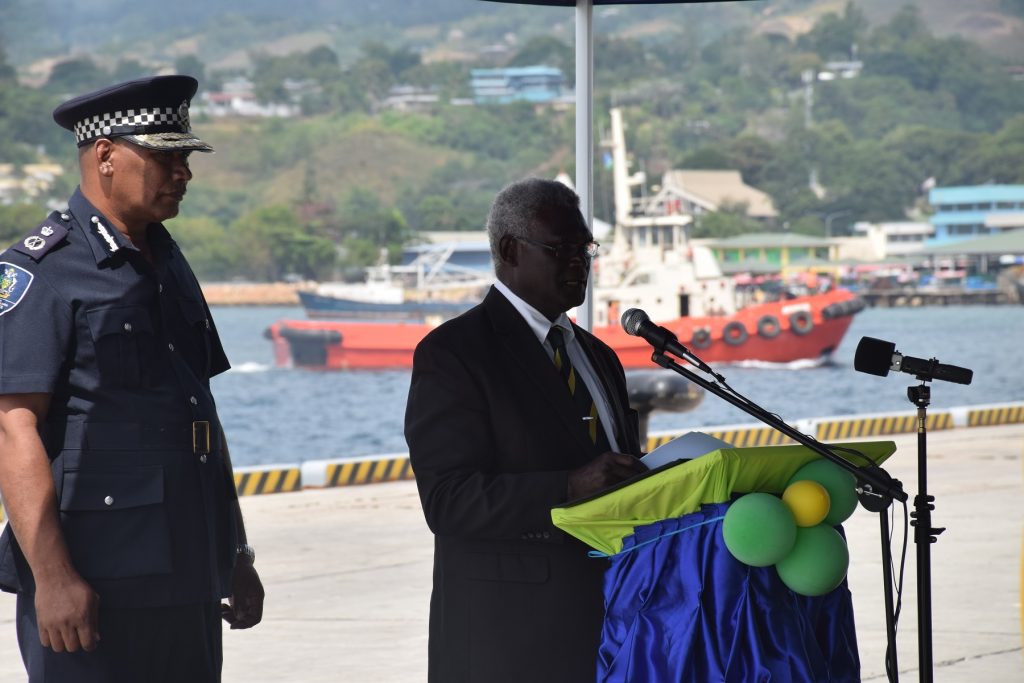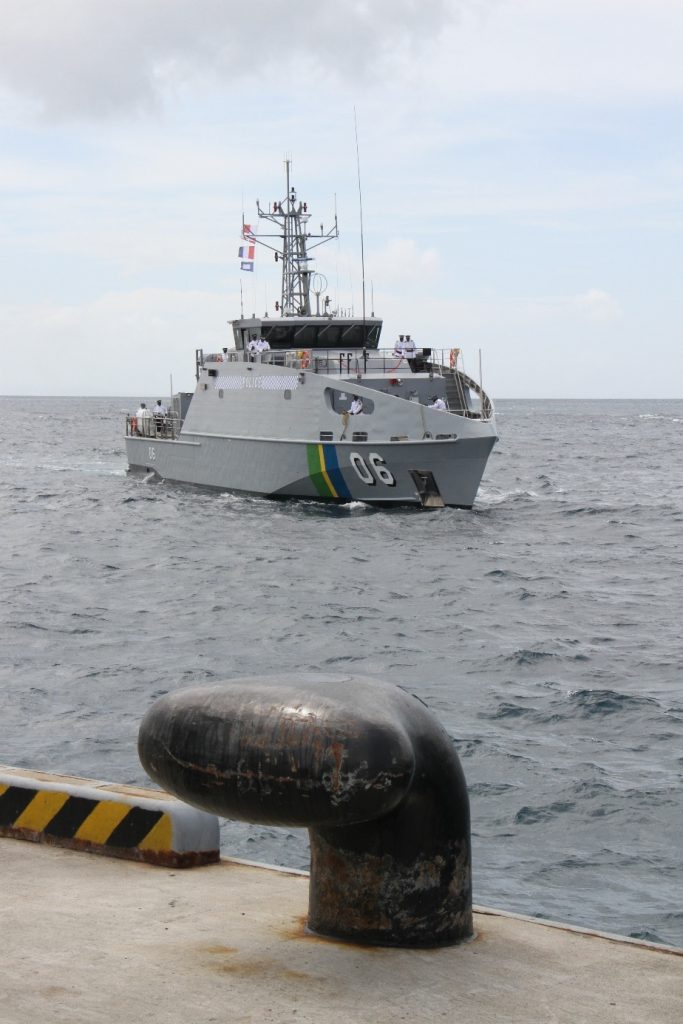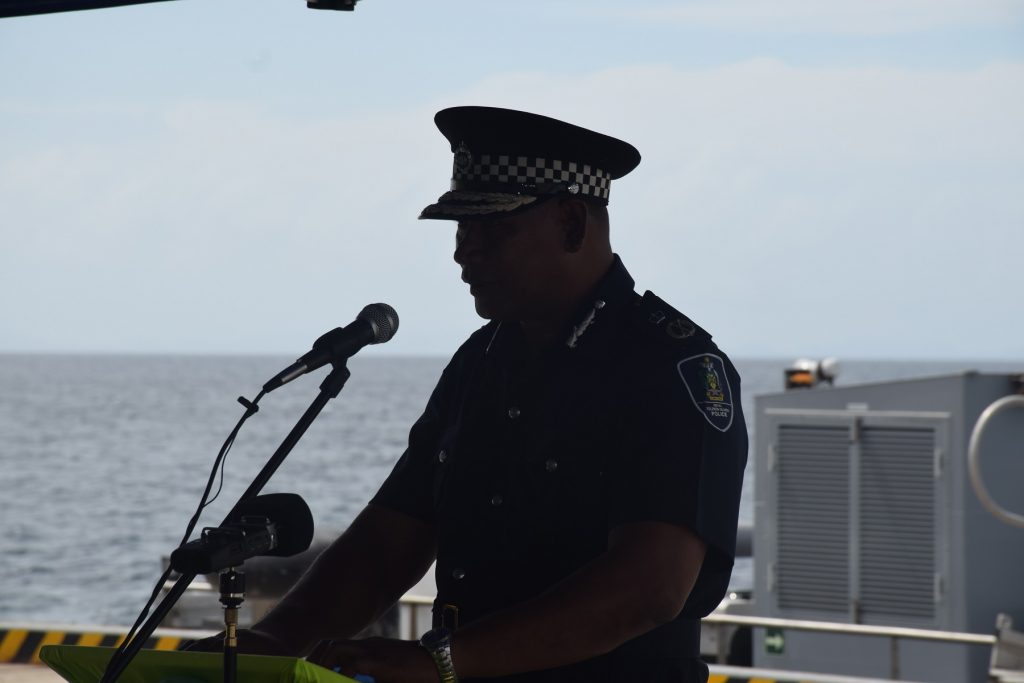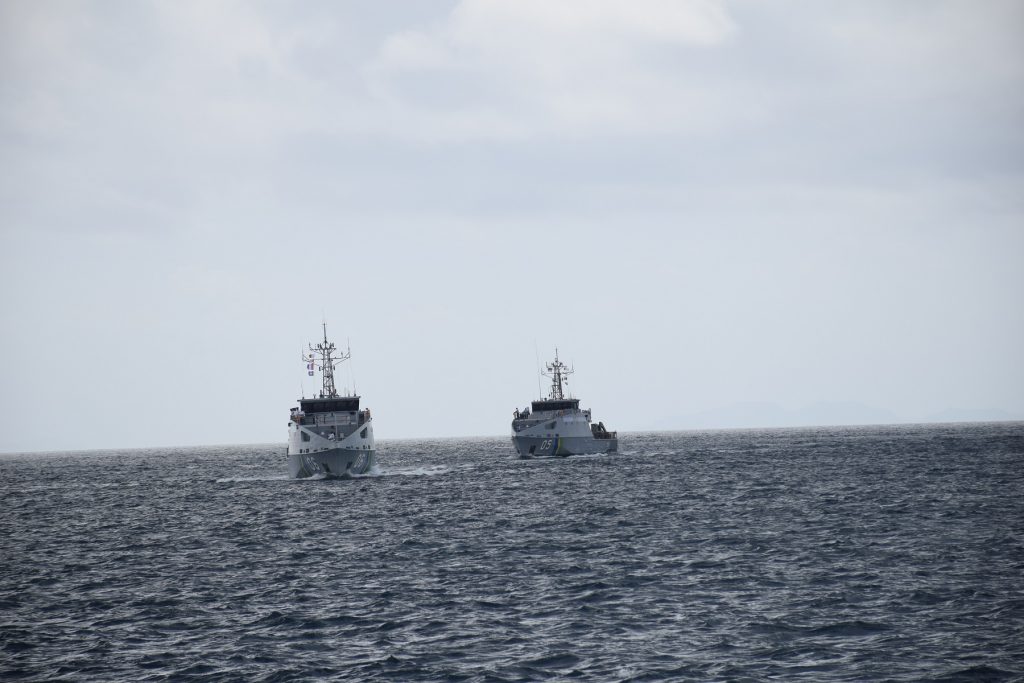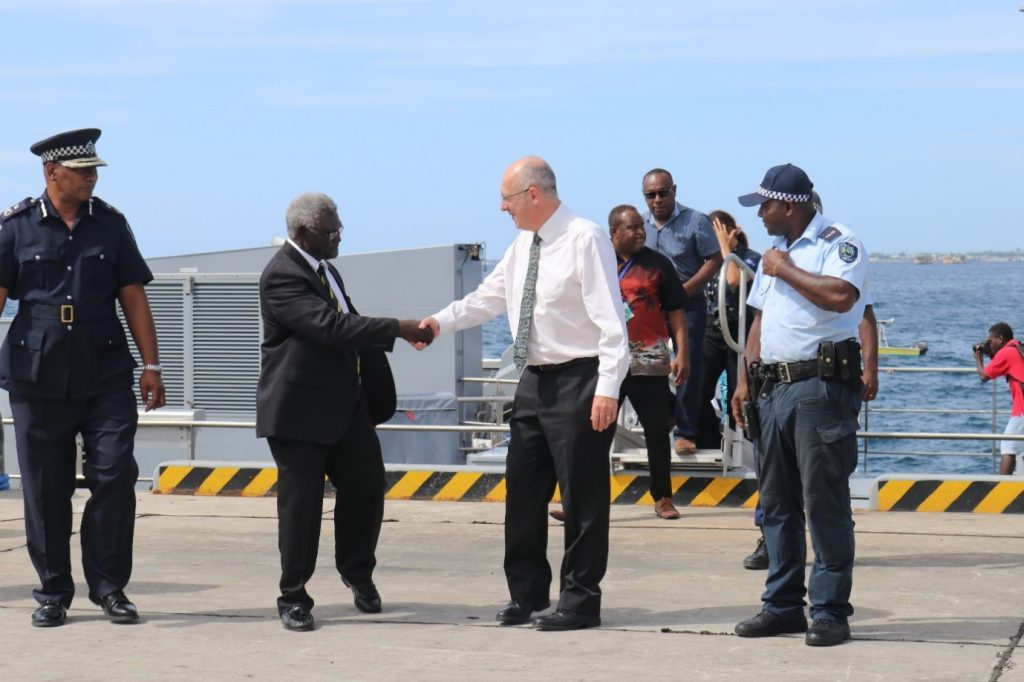22 July 2021 | TUNA PACIFIC
HONIARA, Solomon Islands - The Solomon Islands government is confident that the revenue from its tuna industry will progressively improve by the end of the year, despite the challenges that the pandemic and climate change have posed to the economics of the industry.
According to the Ministry of Fisheries’ Deputy Secretary of Corporate Services Mr Patteson Lusi, 2021 is regarded as a challenging year for the Solomon Islands tuna industry. He says the revenue outlook projection is estimated to be SBD$80 million (USD$1 million) less.
In an appearance before the country’s Public Accounts Committee in April 2021 to scrutinise the 2021 budget, it was revealed that the impacts of the COVID-19 pandemic and climate change on the country’s fisheries industry are causing the drop in revenue.
Mr Lusi, revealing the projected revenue drop for 2021, says the country is expecting roughly $290.3m by the end of the year.
“It is a reduction of $35.8m from $326.1m last year. This estimated drop is partly because of the COVID-19 pandemic and its impacts that we are experiencing.
“Nevertheless, we are hopeful that good things will turn out this year and [revenue] will be similar to last year’s collected revenue,” says Mr Lusi.

With the risks posed by the pandemic, local fisheries officials are being trained to apply the knowledge and skills on Sea Inspections and importantly the COVID-19 guidelines for their safety at sea. Photo: Yohni Fepule’ai/FFA
With the national government now embarking on a redirection policy, the Ministry says it must also try and ensure that the Ministry achieves its objectives in the redirection policy and also satisfies their corporate goals for this year.
“We are committed that we will try as much as possible with the budget of $27.2m to deliver our programs for this year. We are also looking forward to the support of our donors with $37.6m this year.”
COVID-19 pandemic, climate change has reduced tuna revenue
Permanent Secretary for the Ministry of Fisheries Dr Christain Ramofafia told the committee that what was revealed was the realistic outlook for the projected revenue for Solomon Islands.
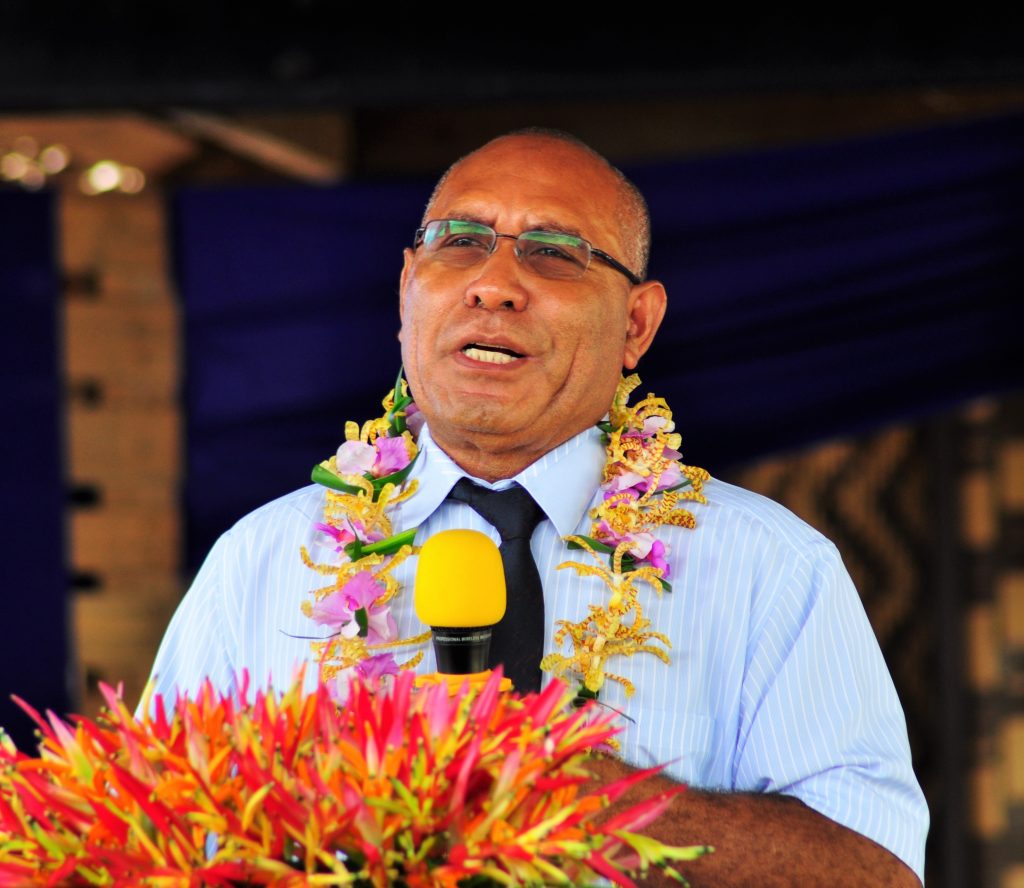
Permanent Secretary for the Ministry of Fisheries and Marine Resources (MFMR), Dr Christain Ramofafia during the World Tuna Day Celebrations in Honiara, Thursday 6th May 2021. Photo: Ronald F. Toito’ona
He also clarified the two factors that have forced the revenue reduction.
“In fact, last year we tried to strengthen this projection, but two important issues have forced the reduction – one is the impact of COVID-19 on the fisheries sector,” says Dr Ramofafia.
“For us in Solomon Islands, the impact of the pandemic on fishing itself is not that severe. But when you go up the chain in terms of exports and operations in other countries – especially in [fishing] companies – the selling of [Vessel Day Scheme] days will also be affected. It will also affect companies that are taking up your [Vessel Day Scheme] days that are paid to fish.
“The other reason is that the fish are now in the Eastern Pacific – there’s a strong seasonal impact on fish [due to climate change].
“In terms of income, the reduction is strong on the domestic licenses – the fees that we collected domestically. For National Fisheries Development, two of its big vessels were no longer operational – however, they are important in the purchase of our days. But we can no longer cope – thus the reason for the reduction,” he says.
Dr Ramofafia also revealed that the other big reduction is at the Forum Fisheries Agency under the US treaty.
“The fees for the US treaty are also reduced. That means selling our days in the US treaty will also be reduced. That will also affect our revenue.
“In the US treaty, 85% is selling days in all Parties to the Nauru Agreement countries or US treaty. Therefore our revenue is projected to decline from the previous allocation of our US treaty.”
For this year, although it is not looking good for the country, Dr Ramofafia says the Ministry is hopeful that it will turn out well in the end.
“The predictions are there, but from experience, at the end of the year fish are always combined in our waters. Because of that, the demand for days can increase at the end of the year and towards the beginning of another year,” he says.
Fish stocks healthy, pooling system looks good
When the committee asked about the fish stocks in the country, Dr Ramofafia says the stock of all four fish species “looks good”.
“I think [our stocks are] the best globally in terms in all sorts of tuna (yellowfin, bigeye, skipjack and albacore) in our waters.
“In a recent study by the Pacific Community (SPC), the Pacific has the healthiest tuna fishing ground in the world. It’s just that the fish went towards the east that forces us to lose out.
“Predictions are that as the changes of climate change occur, there will be a shift in the movement of fish stocks,” says Dr Ramofafia.

The Tuna Industry has also helped fish vendors to earn an income, especially from leaked tuna being offloaded when doing transhipment in Honiara. Photo: Ronald F. Toito’ona
It is also common that towards the end of the year, the fish will return into the country’s exclusive economic zone. However, the country’s pooling system must also be considered.
The committee asked if the pooling systems in the Pacific would be affected politically. This is due to the tension experienced at the Pacific Islands Forum Secretariat, since the countries which Solomon Islands relies on are from the Micronesian grouping.
But Dr Ramofafia responded that Solomon Islands have been engaged in three pooling systems and its membership for sub-grouping in the PNA, which is the strongest. It is not disturbed by any political situation.
“I think the approach we will take is to increase the commitment under the sub-grouping of the PNA to at least increase our revenue – I think that is our [Ministry’s] strategy at this time. If we increase that, I think it will help our revenue.”
He says the other issue is the overall allocation of days under the PNA days allocation.
“Actually, our number of days is going down because fishing is always happening in the Eastern Pacific. So, at times, we normally trade days. For example, the Federated States of Micronesia usually buy from us. So the days are actually counted against them – that is ‘their days’ now.
“The assessment is over a period of 8–9 years and the average is given to us every year as a reallocation of days. Because of that, it also affects how many days we trade,” Dr Ramofafia says.
The Ministry’s Director of Fisheries Mr Edward Honiwala agreed with Dr Ramofafia – he explained that the budgetary implication of the number of days allocated in the PNA is that Solomon Islands will lose the revenue for around 100 days.
“This is a lot of money in revenue for Solomon Islands,” Mr Honiwala says.
“This is due to the modelling of how fishing days are allocated by PNA member countries.”














